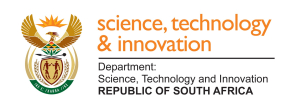
Background
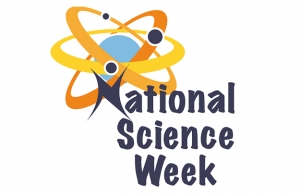 National Science Week (NSW) is an annual event aiming to exhibit and communicate awareness in science. It is an initiative of the Department of Science and Innovation (DSI), a countrywide celebration of science involving various stakeholders and role players conducting science-based activities during the week.
National Science Week (NSW) is an annual event aiming to exhibit and communicate awareness in science. It is an initiative of the Department of Science and Innovation (DSI), a countrywide celebration of science involving various stakeholders and role players conducting science-based activities during the week.
The NSW 2021 will be conducted through information and communications technologies (ICT). Investigation conducted has revealed interesting association of South Africans with various ICTs, which if adequately exploited would exponentially expand the reach of the science engagement campaign. It has become a tradition that the NSW takes place during the first week of August. Sustaining this practice, the NSW 2021 will take place from 1 – 7 August 2021.
Theme
The NSW 2021 will be conducted under the theme “Making it possible through science”.
Objectives
The objectives of celebrating the NSW 2021 under the aforementioned theme are to:
(a) illustrate the role of science in tackling problems and challenges encountered in creating and sustaining a prosperous society;
(b) demystify the myths surrounding some of the innovations that are important to the advancement of society;
(c) display that South Africa is a home of some discoveries and innovations that influence the world; and
(d) raise science, technology, engineering and mathematics (STEM) career awareness.
Keeping up with the practice of recognising the United Nations (UN) international observances, the NSW 2021 will incorporate activities to celebrate the UN’s International Year of Fruits and Vegetables (IYFV) 2021. Attention will be given to local discoveries and innovations in plant production or sciences.
Implementation Plan
National Science Week Grants
Did you know that there are grants available to run National Science Week events?
Pre-National Science Week 30 July 2021 (Friday)
| starting time | type of activity | description of activity | online link |
|---|---|---|---|
| 09:00 | Webinar |
ARTIFICIAL INTELLIGENCE (AI) AND 4IR IN AGRICULTURE :
TACKLING FOOD INSECURITY
How technologies are changing the future of work – understanding 4IR and the use of Artificial Intelligence in Agriculture to tackle food insecurity. Qinisani Qwabe (Rural Development) Host : Nelson Mandela University (NMU) |
Artificial intelligence & 4ir in agriculture: tackling food insecurity |
Previous Webinars
Topic : Artificial Intelligence (Ai) and 4ir In Agriculture: Tackling Food Insecurity
Topic : From the discovery of the Higgs boson to modelling COVID-19: The role of AI. Professor Bruce Mellado
Host: Wits University
- Webinars Navigation
- Exhibitions
- New covid-19 variants which have emerged in
Africa – Dr. Hazel Mufhandu - How blue skies research created billions of
Rands worth of impact in South Africa – SANSA - Bolepi dinaledi and Covid-19 pandemic:
Dr. Motheo Koitsiwe - Crop Breeding – South Africa’s sustainability in the face of climate change and response to global
competition - Tshwane university of Technology representatives will give insight on the effect of COVID 19 to the
mental health if the institution specifically on students. The lecture will be for 20 min and the 40 min of roundtable discussions - The Why and How of Aerospace Propulsion Research at UKZN.
Prof Michael Brook - How do we know if and when science makes a difference?
Discussion with South African Journal of Science (SAJS) authors - Webinar based on science poetry
- Vegetables and Medicinal Plants
The role of vegetables and medicinal plants in enhancing food, nutrition and human health
security in South Africa.
__________________________
⊚ Seeing how energy and matter flows and is recycled from primary producers (autotrophs) to
primary, secondary and tertiary consumers
⊚ Dinosaurs of Africa. The fossils have been discovered across the continent – from the Sahara
Desert to the Karoo. Dinosaurs of Africa outlines the different dinosaur’s species, including
fish-eating, sociable, and predatory dinosaurs, as well as those that were cannibals. Prof.
Anusuya Chinsamy-Turan is a palaeontologist based at the University of Cape Town.
⊚ AET AFRICA, South Africa – SEED Low Carbon Award 2019 Finalist
– HRSC (Human Resource Council)
⊚ Dr Petro Erasmus – Math Whartels
– HRSC (Human Resource Council)
⊚ Animations on Covid-19 – Math Whartels – University of Cape Town
⊚ KwaZulu Natal Research Innovation and Sequencing Platform – (KRISP)
⊚ Maths Thinker – Measurement – Grade 6 – 12:00 – Experiment – Test tube rocket -Cape Town Science Centre
⊚ Maths Thinker – Measurement – Grade 7 Exhibit – Nice Dice -Cape Town Science Centre
__________________________
Exhibitions
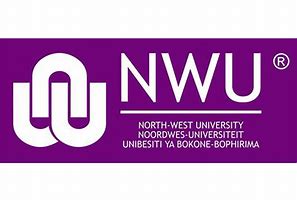
_________________________________
02 AUGUST 2021 (Monday)

_________________________________
02 AUGUST 2021 (Monday)
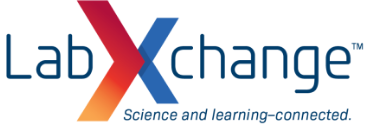
_________________________________
02 AUGUST 2021 (Monday)

_________________________________
02 AUGUST 2021 (Monday)
For more information
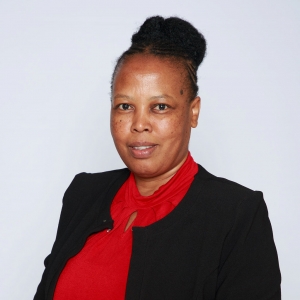
Bafedile Kgwadi
bafedile@saasta.ac.za
(083) 569 3275

Brenda Edwards
brenda@saasta.ac.za
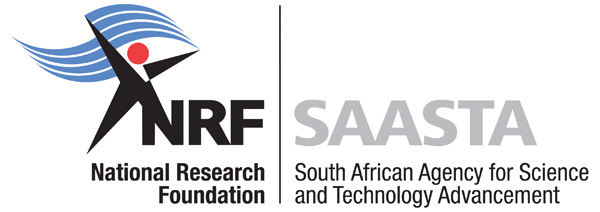
 The South Africa Agency for Science and Technology Advancement (SAASTA) is a business unit of the
The South Africa Agency for Science and Technology Advancement (SAASTA) is a business unit of the 